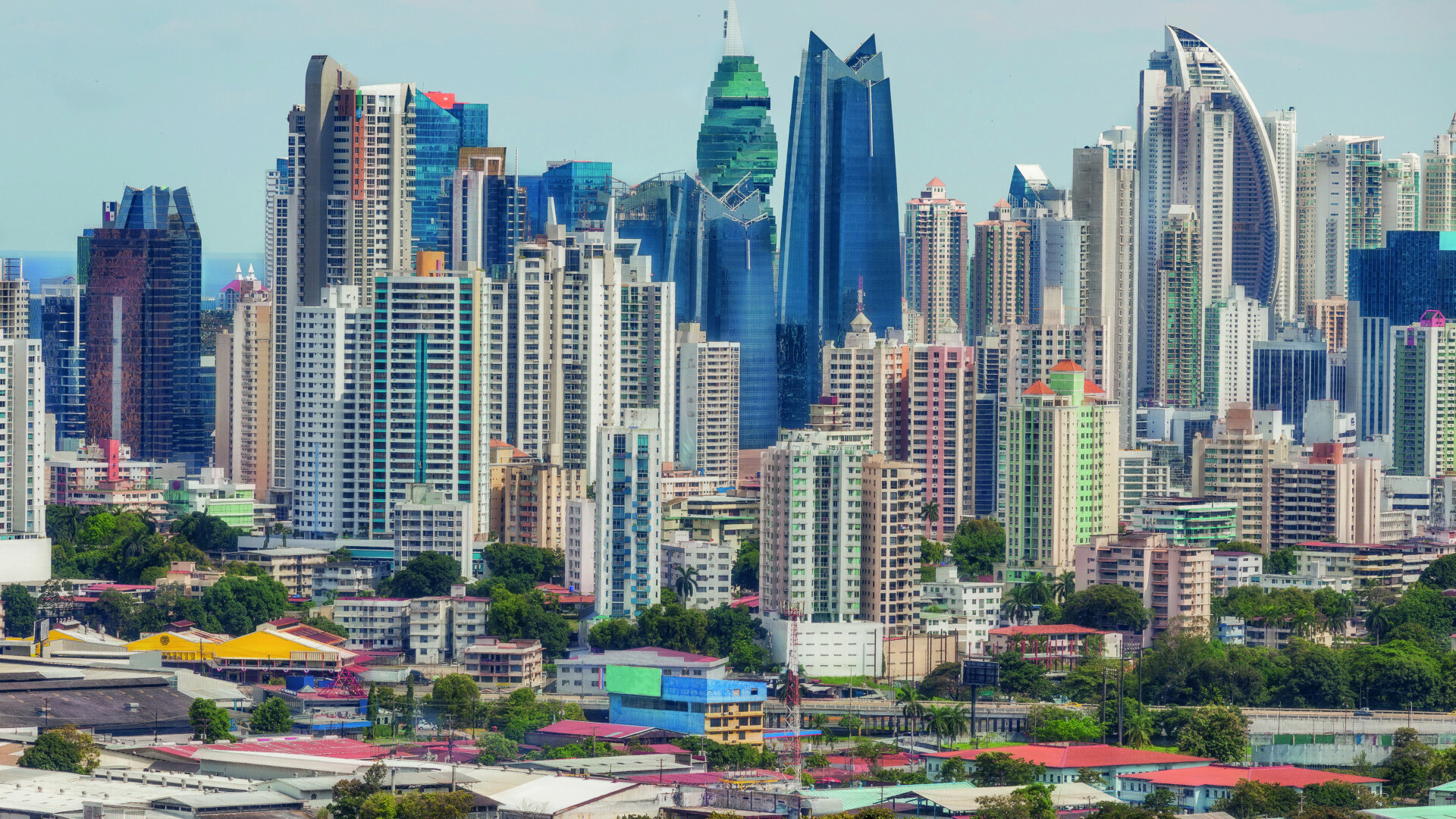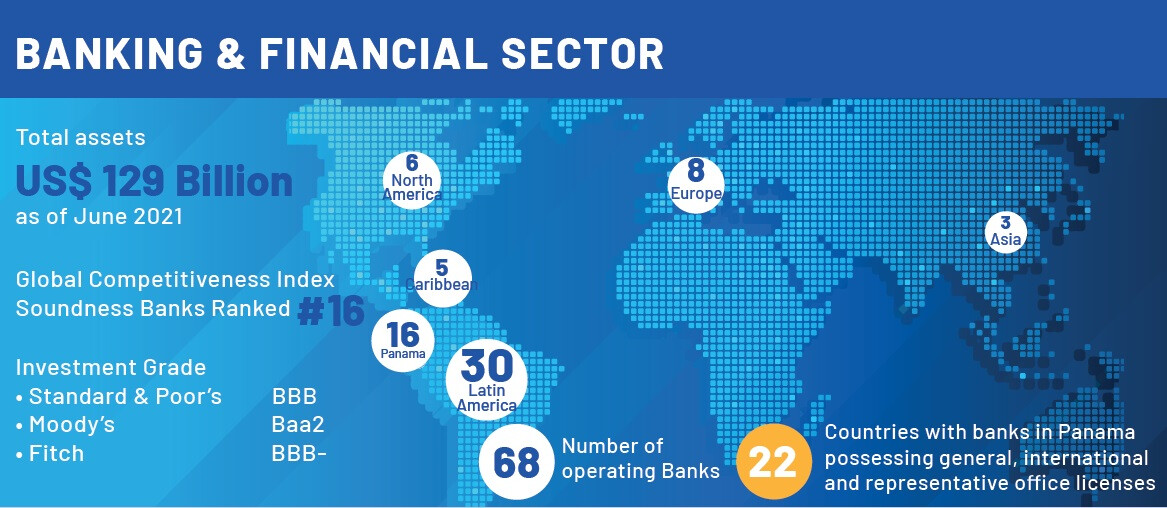Panama's Finance Hub Faces the Future
With the pandemic receding into history – and the country’s involvement in the grey list set to follow – Panama's banking sector is set for rapid growth...

In March 2020 Panama became the first Latin American country to issue a sovereign bond during the pandemic. It was followed in August by state bank, Banco Nacional, which raised $1billion for ten years at an annual rate of 2.5% - the cheapest ever debt emission from a Latin American bank.
These successes were partly because of Panama’s investment grade. But with neighbouring Colombia losing its investment grade in 2021, and Panama’s public finances being battered by the pandemic, could the country be downgraded? Banco Nacional CEO, Javier Carrizo, doesn’t think so.
“Panama’s economy is incredibly resilient and has always shown a surprising capacity to bounce back. We’ve already recovered 80% of our pre-pandemic GDP and will continue growing in 2022. I think the improving health of public finances mean that we will keep the investment grade. Don’t forget the Canal just posted record earnings with almost $4billion in the last year. Lots of people predicted that global trade would fall in the pandemic but it didn’t happen.”
Jaime E. Alemán, Partner at Alemán, Cordero, Galindo & Lee (Alcogal), one of the most prestigious corporate law firms in Panama, believes it’s important to consider the benefits of the state’s pandemic spending. “The debt was used efficiently to provide good medical care and also to increase subsidies to those most in need, which has allowed Panama to keep the social peace that we’ve always been proud of. We look after the needy people in this country, and provide free medical care and education to all our citizens, as well as subsidies for electricity, transportation, housing and other basic needs.”
But even if Panama did lose its investment grade, Carrizo wouldn’t be too worried. “OK – borrowing costs would increase slightly but it wouldn’t affect the security of my clients’ deposits because Panama is a stable, well-regulated, dollarized economy with zero capital withdrawal tax. However, we don´t see reasons for that to happen.”
Grey list
Panama’s financial centre was strong enough to resist a pandemic and an 18% GDP contraction in 2020. But a far bigger threat comes from the bean counters working for the Financial Action Task Force (FATF). In the dying days of the Juan Carlos Varela presidency, Panama was placed back on FATF’s international money laundering ‘grey list’. It was bad news for Panama, which had already suffered a spell on the list from 2014 to 2016. It also shifted the priorities of the new Laurentino Cortizo administration overnight, as it now has to remove the country from the list. But most significantly of all it threatens Panama’s status as a regional financial centre as the scrutiny and reputational damage of being on the list makes Panama a less attractive destination for international capital.
“Our main advantage as a country is our geographic position and connectivity for international investors”, says Aimee Sentmat, CEO of Banistmo, Panama’s second-largest bank. “But if we aren’t respecting requirements from important international organisations, such as the EU, OECD and FATF, then it will be difficult to attract international investment. And this will eventually hit the banking sector.”

Many in the banking sector are aggrieved because the banks already comply with all of the FATF regulations. “Even FATCA admits that the Panamanian banking system is 100% compliant”, says Carrizo. The problem, say the bankers, is that some legal firms are not complying. To better understand the matter, we asked one of Panama’s leading corportate lawyers, Jaime E. Alemán.
“The factors behind Panama’s position on the grey list are mainly due to the reticence of many influential members of the legal profession in Panama in adopting the measures proposed by the OECD and the Financial Action Task Force, even though identical measures had been already implemented by the BVI, the Bahamas and other jurisdictions that provide international corporate services similar to ours. I respect their opinion”, says Alemán, “but have always stated that in the long term it was a mistake. I think time has proven that I was right.”
Yet Alemán believes that the new Law 254, will ensure that the recalcitrant lawyers comply. “Law 254 is a positive development. As of November 11, 2021 all Panamanian companies will need to send accounting records to the registered agent of the company in Panama. This, together with the implementation of the Beneficial Owners Registry, will hopefully allow Panama to improve its standing with the OECD and get us off the grey list in February of 2022. I congratulate President Cortizo and his administration for taking this important step, which had been opposed by many important sectors in Panama for years.”
Outsiders might get confused by the raft of different financial legislation that Panama has passed over the years, but Alemán is keen to emphasise the importance of Law 254. “I´m glad that President Cortizo, unlike his predecessors, had the vision and the courage to approve this law. It’s one of the best things to happen to Panama recently. We as lawyers can’t put our interests ahead of the wellbeing of the whole country.
"Another factor that has led us to been put on the grey list is the lack of rule of law in Panama. We have a very weak judicial system, which allows criminals to get their way without suffering any consequences. I hope that this will change as a result of the four excellent appointments that the Cortizo administration has made to the Supreme Court in the last two years, which will hopefully produce much better judicial results than in the past. The United States government has been cooperating closely with Panama on strengthening the prosecutors’ office as well, and we’re already starting to see good results from that effort. So, I’m cautiously optimistic about our future.”

The grey list is an existential issue for Panama financial centre – in the same way that the Canal needs to secure its water supply. The reason the grey list matters so much is that Panama itself is a small banking market, with a population of just 4 million people. Admittedly there are some very large infrastructure projects to finance, but the real strength of the banking sector is that it’s a secure place to store international money. And being on a grey list undermines international perceptions of Panama’s security.
Indeed, Panama’s finance sector is a core part of the country’s open economic model. One that compensates for the small size of the local market, by inserting itself as a vital piece of the global economy. It’s all part of the Panama package, explains Alemán. “The benefits of investing in Panama are its dollarized economy, its strong democratic tradition (the opposition has won every election since 1994), a favourable investment climate, the excellent infrastructure, the relatively low corporate tax, the connectivity offered by Tocumen International Airport, its strong banking sector and the good security that exists in the country.”
Despite its travails with the pandemic and the grey list, Panama’s banking sector has grown considerably over the last five years. With the pandemic receding into history – and Panama’s involvement in the grey list set to follow – the stage is set for even more rapid growth in the future. With these existential issues out of the way, Panama can pursue its potential in exciting new areas like fintech and green finance.